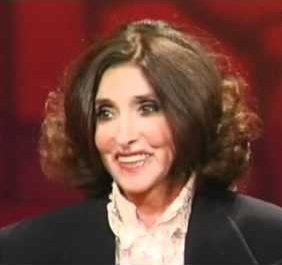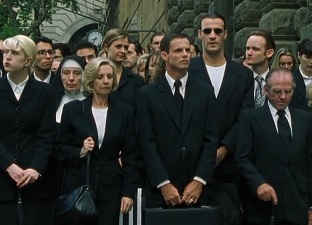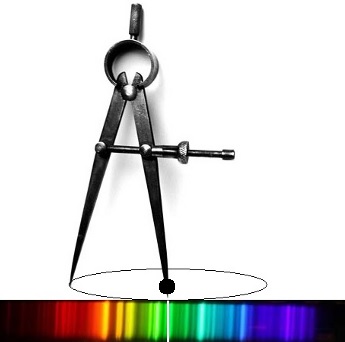A fascinating question to reflect on is: who will work in the future, humans or robots?
Will robots take charge of almost all the jobs? And in this case, what else will humans do during the day, with all the free time available? Or the scenario will not change much: even if in a more robotized society, humans will continue to work most of the time anyway?
The two different scenarios correspond to the change, or the persistence, of the very concept of job that exists today, and of some structures, in particular the monetary system and the production of energy. Easy to understand that if the necessity to earn money vanishes, and if the necessity to pay the energy vanishes, more easily also the necessity to work vanishes.
I want to try to analyze the two possibilities. On the first one I can offer a personal point of view, considering that I’m living with it already: I don’t have a job and I have a lot of free time. In this case, it must be evaluated what will happen if the percentage of people that live like me, today a minority, will grow in the future. However I prefer to start from the scenario that is more familiar and therefore easy to imagine: the one in which humans will continue to work most of the time.
Humans will continue to work
It seems obvious to me that technology will keep on being developed, so inevitably the trend that has been going on for awhile now will continue: i.e. humans will continue to be gradually replaced by robots in their jobs, since the robots in most cases are more precise and efficient.
For many people that tried to predict the future, this argument meant automatically that will come the day when humanity will be freed from labor. But I’m not sure of sharing this optimism. To me instead, it seems better not to underestimate the possibility that, as human jobs will switch to robots, more and more fake jobs will be invented to keep the humans busy.
With fake jobs I mean unproductive jobs, that don’t generate concrete resources, or superfluous jobs, that generate resources in excess that later are thrown away. Actually many jobs of both types exist already now, and keep the humanity busy already now. So what I’m talking about is nothing else than a continuation of the phenomenon already in progress, that could survive and get amplified.
Today very evident examples of unproductive jobs are seen in the banking sector and in politics, while of the superflous jobs the evidence has become internet, that by now is definitely ultra-saturated, because it’s flooded every day with new contents created by armies of journalists and authors, contents that however reach an audience that is more and more microscopic. Even many of today’s schools are factories for superfluous jobs, dedicated to provide the students with a lot of knowledge that they will never use -so they’ll throw it away– in adult age.
It’s plausible that the future will present a picture in which, even if in the context of a great abundance of resources generated by robots even more advanced and efficient than the current ones, humans will continue to have very little free time, because they’ll be very busy with jobs invented… exactly with the purpose of keeping them busy.
Someone could ask: jobs invented by whom? A conspiracy theorist would probably answer “by the estabilishment”, and there’s definitely no doubt that the estabilishment gets benefits from having the majority of people busy working, with little free time. In this way there’s a more ignorant and tired mass, easy to manipulate. However I believe that in large part it’s people themselves that tend toward these useless jobs, with no much need of some “secret agenda” to push them.
To understand the reason it’s sufficient to observe how people behave when they have free time: the majority, actually, is not at all at ease with free time.
Free time is a trigger that can cause an increased level of consciousness, and a high level of consciousness often is hard to sustain: questions hard to be answered appear, a lot of uncertainties appear. It’s for this reason that often people, when they’re not working, do a systematic job to actually lower the level of consciousness: eating junk food, watching television, going shopping, drinking alcohol.
In addition to this spontanous tendency, as anticipated above, two determinant factors are money and energy. If a financial system similar to the current one persists, many humans will continue to find themselves in a situation with great abundance of resources (abundance that will probably become more extreme thanks to the robots), but they will be able to access those resources only through money, that they will try to earn by working. Similarly for energy: if it will not become abundant and easily accessible for everybody, humans will continue to work to pay for it.
Also, a whole series of new artificial needs could arise, to which many new artificial jobs would reply. Here a number of more or less distopyan scenarios can be imagined, for example a planet where despite robots will have solved the problem of producing the essential resources, humans will be absorbed anyway by a gigantic industry of entertainment, made of virtual realities and videogames, inside of which they will continue to work many hours per week.
The idea sounds rather disquieting, but actually it wouldn’t be anything else than the acutization of what happens today. In this sense we could say that the future is already now. The only difference would be that, if today the percentage real jobs vs artificial jobs is something like 30% vs 70%, in the future it could lean even more toward the artificial jobs, and become something like 5% vs 95%. Within the small percentage of real jobs that will survive in the future, probably there will only be jobs in which the “human factor” (imagination, creativity, emotions) is an advantage not challenge-able by robotic efficiency.
So as a quick recap, in this first scenario many humans would continue to work also in the future, either to escape from free time or because they would continue to believe that they have to work. This implies that they would continue to adopt the concept of job that exists now (it’s “job” if it’s compensated with money), and implies that they would continue not to realize that by working for money, in a financial system similar to the existing one, they basically play a poker game rigged to their disadvantage.
It’s the scenario I’m less attracted to, because it involves a very unaware future humanity, but it still holds some positive aspects, especially for that minority of people that will decide not to work. In fact, since everybody else will be busy with their jobs, for those who will have more free time there will be more opportunities available, less competition, less traffic, less lines, and so on.
Humans will stop working
The second possibility comes from a more radical transformation of consciousness, and I believe that it’s also the most likely scenario. In fact, I would tend to give for a fact that we will go toward this scenario in the future, if it wasn’t that the question “but then why it didn’t happen already?” makes me cautios. My impression is that a transformation will take place, but much more slowly than some people predict.
In this vision, people will abandon in mass the things that today are considered jobs. Willingly or not, unemployment will come for nearly everyone: some will abandon their jobs consciously and voluntarily, others instead will be pushed into unemployment by the robots, by profound changes in money (maybe from fiat to cryptocurrency), by entrepreneurs that will make energy abundant and accessible, by smaller and more efficient governments.
Those that will be pushed into unemployment, probably, will try more than the others to keep alive a market of fake jobs, that unlikely will disappear completely. The others however will have finally surrendered to the obviousness: in a world that is highly technological and abundant of goods and services, easily produced by the robots and accessible to everyone, the old concept of job doesn’t make sense anymore: its motivation to exist, simply, disappeared.
So all these people will find themselves in front of the same question that I faced already few years ago, when I quit my job: what do I do during the day? Until today, for many people this question would probably sound as threatening: they would associate it immediately to the question how would I avoid boredom? It’s from here, in fact, that begins the search for distractions, for activities that “keep us busy” (as many existing jobs are, at this point).
But what will happen in the future, if people will look inside this boredom, instead of trying to avoid it with entertainment? In fact, if fake jobs will have lost any credibility as option of partial time-fillers, extending the television fictions and the videogames to the whole time could feel as unsatisfactory for many people. Even traveling in the real world, an activity that many fantasize to do “if it wasn’t for the job”, if done constantly could not dissipate the feeling of a lack of purpose.
What do I do with my time? is a difficult question -even existential– since inevitably it originates other questions in chain: what do I do with my life? and so what is the meaning of life? In front of this last question a huge number of people could land in the future, a lot more than today. And from the great variety of answers that will come, the planet and the society could really be transformed in unpredictable ways.
It’s possible that, after several reflections, many people will reach a conclusion similar to the one that I reached: unless we decide to live life waiting for the manifestation of some “divinity” or “superior authority” to reveal to us a universal meaning of life, valid for the whole humanity (something that maybe, probably, will never happen) it makes sense that we assign it by ourselves, individually, a meaning to our life. The meaning we choose is exactly the meaning of life, the “right” one.
This choice will be crucial to decide if even in the future we humans will continue to do something during the day, rather than becoming an almost completely inactive species, fed by robots. Those who will take the time to decide how to use their life, will have the motivation to act.
But at this point, these actions will be part of a totally new concept of labor, profoundly different from the previous, just because the motivation that generates it will be profoundly different. The motivation will not be anymore obtaining the “old” goods and services, at this point redundant and not really interesting, but it will be an impulse coming mostly from the inside, and not anymore from the outside.
To such a substantial change in the motivation that will generate labor, probably a substantial change in the fields toward which labor will be addressed will follow. Hard to imagine, in fact, that in a scenario where labor will be highly optional and humans will decide to work following a process of introspection, the efforts will be employed to produce souvenirs or irrelevant education. Possibly those that will get a strong momentum will be new fields like genetic experimentation, space exploration, and in particular the research on how the mind works.
So, the one I’m describing here is a scenario in which humans would stop working -but for what is the old concept of work-. However many of them could stay active by adopting a new philosophy, and according to it they could more often start to feel to want to “work”.
My journey
I’ve been lucky enough to reach the question what do I do with my time? well prepared. Unemployment is something that I searched for and that I wanted strongly. The reason for my determination came in fact from having taken the time to decide what was the meaning of life, for what I wanted to use mine.
The answer that I found, that went through refinement with time anyway and that is still being refined, is that the meaning of life is love: the love that we give and the love that we receive. Secondly, the meaning of life consists also in exploring and understading better the universe, enjoying the beautiful things that exist, and producing new beautiful things.
This type of vision had effects in many areas of my life, and obviously also on my practical concept of job. The concept I had before became obsolete and not proposable anymore. Working has become adding something beautiful to the world, and having high quality. To me favoring quality over quantity seems necessary at this point, considering the degree of saturation reached by the human production in many many areas, both of material and immaterial products.
I find that for me it works well, to keep this general principle in mind: in fact whatever is the specific project I decide to work on (be it writing an article, producing a documentary, building a house…), it always reminds me why I’m doing it and how to do it. This doesn’t imply certainty of good results, but I find that it motivates me to act. It’s a principle that created and creates with ease activities to insert in my time, when I feel that I want to “work”. To be honest it’s difficult at this point to label it as working time or free time, as the boundary between the two has inevitably become very blurry.
Picking up a paper in the street is work? Taking care of the garden is work? Even when people ask me what is your job? I’m not really sure what to answer, even if lately I solve the doubt by using the quick and elegant answer “entrepreneur”.
About how much to work, in these latest years I felt like working on my projects just few hours per day, a small amount of time that anyway made me obtain several results that seem good to me. The reason why I didn’t work more are essentially two: the first one is that, actually, I don’t want to miss all the beautiful things “out there” in the universe (there are so many) working most of the time.
The second reason comes from one of my biggest internal conflicts, explained well by the famous allegory of the cave by Plato. In short, I have the impression that some of the most valuable things I have to give to the world (e.g. the useful information I found) often are not of any interest for the world, so spending many hours working on them maybe doesn’t make sense. At the same time, I’m not sure I want to work a lot on something for which there is more interest, but that I don’t “feel” is my strength. This is a doubt I haven’t solved yet, but anyway I believe that it belongs to many other people, so I don’t feel lonely in the conflict 🙂
Actually, I believe that is right through this type of internal “journeys” (introspection, as I wrote above) that the redefinition of labor could pass in the future. If jobs will survive taking a new form, abandoning the current one -often grotesque- of fake jobs, such form could be influenced by processes like the one of disidentification by humans with their job role. So here we’re talking of “reviewing” the relationship with the ego, a relationship not easy… at all.
Notes: While fascinating, this topic is to say the least theoretical and philosophical. The article could have some contradictions, however I believe that it contains several useful points.

 I watched an interview to Anna Marchesini recently, who made me think a lot. Anna is a famous italian comedian, who had a long and successful career in my country. She made an entire generation laugh, with her funny parodies and weird characters. She is really loved here, and I love her too. I have a big respect for comedy as art. In fact, I hope to become a successful comedian too, one day.
I watched an interview to Anna Marchesini recently, who made me think a lot. Anna is a famous italian comedian, who had a long and successful career in my country. She made an entire generation laugh, with her funny parodies and weird characters. She is really loved here, and I love her too. I have a big respect for comedy as art. In fact, I hope to become a successful comedian too, one day.
 and few friends have seen me this way.
and few friends have seen me this way.

